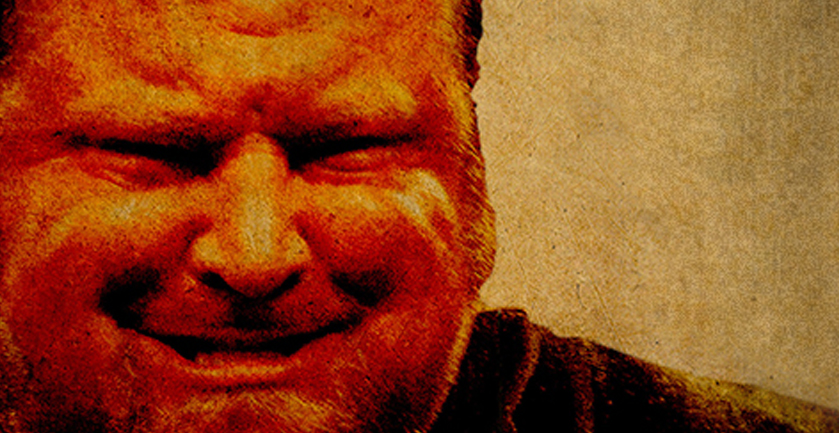
If you want to be successful, there's a lot to powerlifting and strength sports in general. It isn't super complicated, but there's still a lot to know and to learn. I see it as a balance between many different things, including technique, recovery, training, nutrition, genetics, heart and will. When all these things come together with the right balance, you have a great strength athlete. Even though I believe there's a balance, I don't believe that it's an equal balance. Some parts weigh heavier than others. So what is the most important part?
Over the years, I've thought about this question often. In my opinion, heart and will are the most important, though I consider heart and will as one thing, which I'll explain later in this article. But I prefer to start with the bottom of the list and work up from there.
I rate nutrition at the bottom or number six on the list. Before the nutritionists out there get all upset with me, please remember that I think all these things are important. They all play their own part in the overall balance. I rate nutrition as number six because I think there is the most room for error here. I know many athletes, including myself, who got seriously strong eating horribly. At my strongest, I didn't eat any vegetables or fruit. I ate tons of snack cakes, candy bars, chips and all kinds of other bad stuff. Whatever had the most calories in the smallest portions was what I ate. I was also downing four or five protein drinks a day. It was pretty simple—lots of calories and tons of protein (1.5–2 grams per pound of body weight). It wasn't a nutritionally healthy diet, but it obviously worked.
In terms of strength, I think that as long as you're getting enough calories and protein, you're good. Will a healthier diet keep you leaner and healthier? Yes, I definitely think so. Right now, I'm eating healthier than I have in years. Believe it or not, I'm actually eating some vegetables and fruits, which is the first time since I was a teenager living at home. Will a healthier diet help your recovery? I lean toward yes, but honestly, I'm not sure about that. When you're eating clean (or healthy),you have to eat way more food in order to get in enough calories.
Throughout my almost 30 years of lifting, I've changed my diet a lot, and I was still the strongest eating like crap. Nutrition is sixth on my list simply because I feel that if you just get in enough calories and protein, you're fine. In terms of strength, there is a lot of room for error here. If you're really worried about your health and how lean you are, you'll have to pay more attention to it. Keep in mind, I come from a time when strength was all that mattered. It didn't matter how healthy you were or how you looked. It was all about how much weight you could put on the bar.
Training is number five on my list. Again, training is very important, but there are so many different ways to go about it and so many different ways that athletes have gotten crazy strong. I remember when I first started doing meets with top lifters. I thought to myself, "I'm going to suck up all this knowledge and come up with the greatest program ever that will work for everyone." As I wrote in one of my previous articles, there isn't any such thing. Everyone did something different and the only common ground was that they all learned what worked for them. Why are there so many different programs out there? It's because those programs worked for some people but not others. The programs stayed around because they did work for some and then other programs came out because they didn't work for everyone.
Every program out there will work for some people. The hardest part about training is finding what works best for you. The very concept of training is simple though. You break it down in the gym and get stronger when you recover. So if you go to the gym and push your body while continually testing yourself, you'll see gains as long as you're getting proper recovery. Optimizing those gains takes a little more knowledge and education. Similar to number six, training has a lot of room to move, and no set style of training is the best style.
I've struggled with this next part. I'm just not sure where to rank it. Genetics definitely play a role in strength training, but I don't rate it as high as I used to. Because of this, I rank genetics at number four. Way back when I first started my team, I looked for lifters who had great genetics. I hoped for a young high school kid with great genetics to join the team so that I could create an animal by the time he was in college. Well, I did get that a few times and I learned that genetics aren't such a big thing. I had guys who didn't want to work hard enough, couldn't push themselves hard enough and wouldn't dedicate themselves enough. It takes more than genetics to be a world class strength athlete. Even when I was competing, I often beat guys who had way better genetics than me. I just took every single advantage that I could and they didn't. I used myself as an example to show that genetics can be overcome. I was never the fastest, the strongest or the most athletic. I was never the kid picked first or the one who was naturally good at every sport. I had to work very hard to get good at my athletic endeavors. Even when I started lifting weights, none of it came easily. It seemed like I had to grind out every PR. On the other hand, I didn't have the worst genetics either. I'm more somewhere in the middle of the spectrum.
There is a level of poor genetics where the odds of becoming a world class lifter is very slim. That is what makes it hard to rank genetics. It can be a limiting factor in some cases, but I believe that most average people can overcome that lack of a physical genetic gift. I also believe that even with the worst genetics, you can make amazing gains in strength.
We're over the hump now and getting into the things that I believe really affect a lifter's strength. Recovery is number three on my list. This is because recovery is one of the most basic parts of getting strong. We break muscles down in training (this isn't hard to do) and they come back stronger once they recover. Even still, I feel that recovery is one of the most overlooked aspects of training. It's equally as important as the lifting itself. The ironic thing is that recovery is relatively simple.
The absolute best recovery is plenty of quality sleep, which is pretty simple right (expect for people like me). Well, I often see lifters who don't get anywhere near the amount of sleep that they should. Recovery type training can make a very big difference, too. This is simply light weight for high reps. Even going out for a walk or light hike can be considered recovery training. Getting enough calories and protein is part of recovery. I consider taking enough days off from training part of recovery also. Without enough recovery, you don't get as strong as you possibly can.
Recovery has a lot to do with how frequently you can train. If you pay attention to your recovery and get as much as you can, you'll be able to train more frequently and make the most efficient gains. When your recovery is horrible, you won't be able to train as frequently or you could end up overtraining. Either way, you aren't getting as strong as possible and you aren't getting as strong as possible as fast as possible. It's a very simple thing but also a huge building block of strength. For most aggressive people, recovery is much harder to do than the actual training itself, but never underestimate its importance.
WATCH: Into The Void Documentary
Technique is number two on my list. I rate it this high because it's a structural, anatomical and kinetic science. It's hard to argue with this science. There are structurally stronger positions for the human body to be in. There are stronger positions for the way muscles move the body. There is a most efficient way to lift that will allow the body to lift the most weight. For me, lifting was always about lifting the most weight that I could, so it just made sense to learn correct technique. It wasn't until I got into powerlifting that I really learned proper technique.
Throughout my career, especially in the beginning, I often beat people who were stronger than me because they had horrible technique. If you take two people with equal strength, the one with good technique will always beat the person with poor technique. We work so hard to get as strong as we can, so why not take the time to make sure that we're lifting the most weight we can?
In lifting, technique seems to be misunderstood quite a bit. I can't even say how many thousands of times I hear people say that their technique is so good, but when I actually see it, it's horrible. That's exactly how a coach adds lots of weight to a person's lift in just one session—by getting him in the right positions. That person couldn't possibly get stronger in a weekend. The thing with technique is that it may look slightly different based on the structure of each individual. I squat with the very same principles of everyone on my team, but we may look different when we lift because we're all built differently. There are also some exceptions to the rule. I've trained people with different issues, problems and injuries where the normal correct technique can't be done or is just simply no longer the most efficient. This is rare but always something to keep in mind.
Proper technique also plays a major role in your training because with good technique, it's easier to find the weak points so that they can be strengthened. When a lifter's technique is bad, it makes it very difficult to find where the weakness is. Often, I'll hear a lifter claim that he has a weakness in an area, but I quickly fix that by teaching him better technique. Then we find his real muscular weakness once his technique has been fixed. Technique is so important that it should be one of the first things a lifter learns as a beginner. It's also one of the first things a lifter should look at if he isn't making the gains he wants. I dedicated an enormous amount of time to learning technique and it was one of the best things I ever did for my strength.
The number one part on my list is absolutely my favorite thing about lifting and the one thing I love talking about the most. In my mind, heart and will are the most important parts of lifting. I combine these two because they are almost one thing to me. Rarely will you find one without the other. Heart is the thing deep down inside you that says you can do it, that you can achieve it. It never wavers and it never gives up hope. It's always there pushing you forward even in the worst times. It drives you and keeps reminding you of your goal. It gives you the courage to go after your goal no matter what anyone says. The will is what gives you the strength to do whatever it takes to reach that goal. It's what pushes you through all the pain and agony that it takes to reach the top. It's what won't let you quit when times are hard and when things get tough. It's what allows you to do whatever it takes.
Heart and will are the two things I've seen in all top lifters. Lifters may have different nutrition plans, they may train differently and they may perform different recovery methods, but they all have heart and will. Heart and will can overcome just about anything. They make the underdog a champion. Heart and will say, "Fuck genetics." When someone says that you can't do that, it's heart and will that say “Watch me!”
Heart and will are immeasurable. They are the strength above all other strength. They are limitless and boundless. They are what allows lifters to break new ground and do what no other lifter has done. I've seen lifters with everything except heart and will. These lifters never make it as far as they should and they never reach their full potential. I've seen lifters with nothing, but somehow they make it to the top and lift weights that no one would have ever thought possible. They have the heart and will to overcome everything they lack. Never underestimate heart and will. To me, they are the greatest part of lifting and the reason why I love it so much. It's without a doubt my greatest strength. It's the one reason I've achieved the things I have in powerlifting. It is what got me through all the hard times in my life. As far as I'm concerned, it's where true strength comes from.
There are so many things involved in lifting, even more so when it comes to competing. I've just categorized a few of what I consider the most important. There is still hard work, dedication, education, sacrifice, effort and so on. In order to meet your own potential, you need a balance of all these things. However, as I said, some are more important than others.
There are things that I would spend much more time on than others. For example, people always seem to want to know about training or they're always looking for the right training program with very little time spent on technique. I believe this is completely wrong. In my opinion, a lifter is way better spending more time learning proper technique first. Once he has technique down and he understands it, he should focus more on finding the right program.
RECENT: Chad Aichs's Guaranteed-to-Work Miracle Program
I would put more time into recovery and learning about recovery before learning about proper nutrition. I would give up time preparing super healthy meals for a nap any day. I would just make sure to get in my calories and protein in the easiest, least time consuming way. More than anything, I would listen to my heart and will. I would dig deep and find those things in myself however I could.
I run across so many lifters with mixed up priorities—lifters who want to jump right into some advanced lifter's training, lifters who eat like pre-season bodybuilders because they don't want to put on any fat but want to get super strong, lifters who jump right on a bunch of performance enhancing drugs before they can bench 300 pounds. It just makes no sense and there isn't any logic to it. You can't even say that they have heart and will. Heart and will aren't just about jumping in randomly and hoping everything works out. Heart and will are knowing that it will take time. It's knowing that you'll have to take the bumps, bruises and beatings. It's going in full bore using everything in your arsenal, including your brain. It definitely isn't about taking shortcuts or skipping steps.
Heart and will are about being all in and doing everything it takes no matter the work, the pain, the hardship, the dedication, the sacrifice or the time. It's about approaching it with your brain as much as your body. It's about learning and knowledge. Heart and will are about every molecule in your body working toward one goal. It's where true strength comes from. Above all else, heart and will are the most important thing.










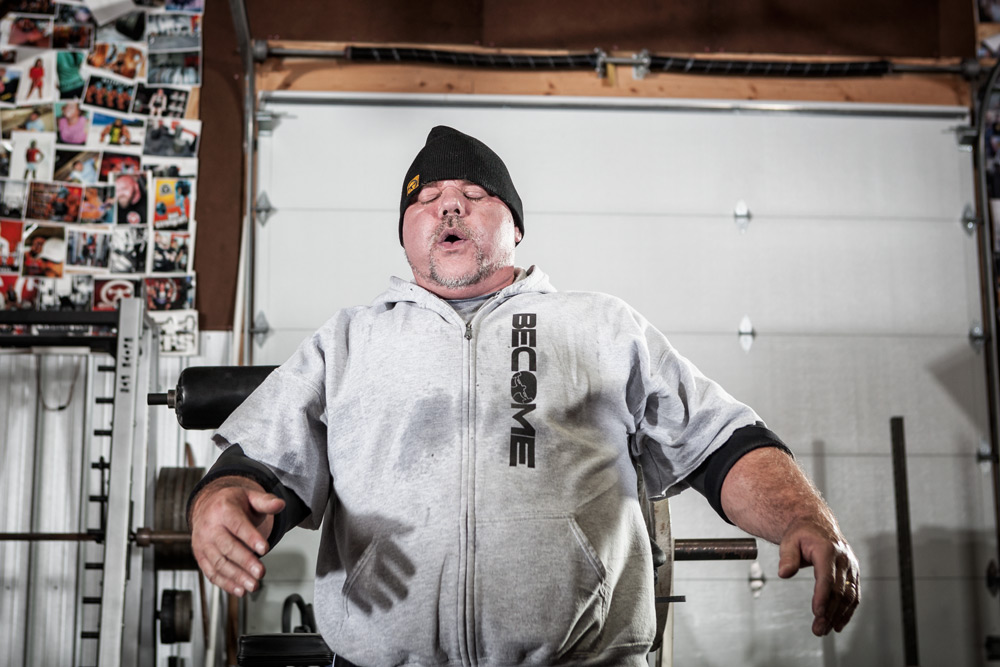
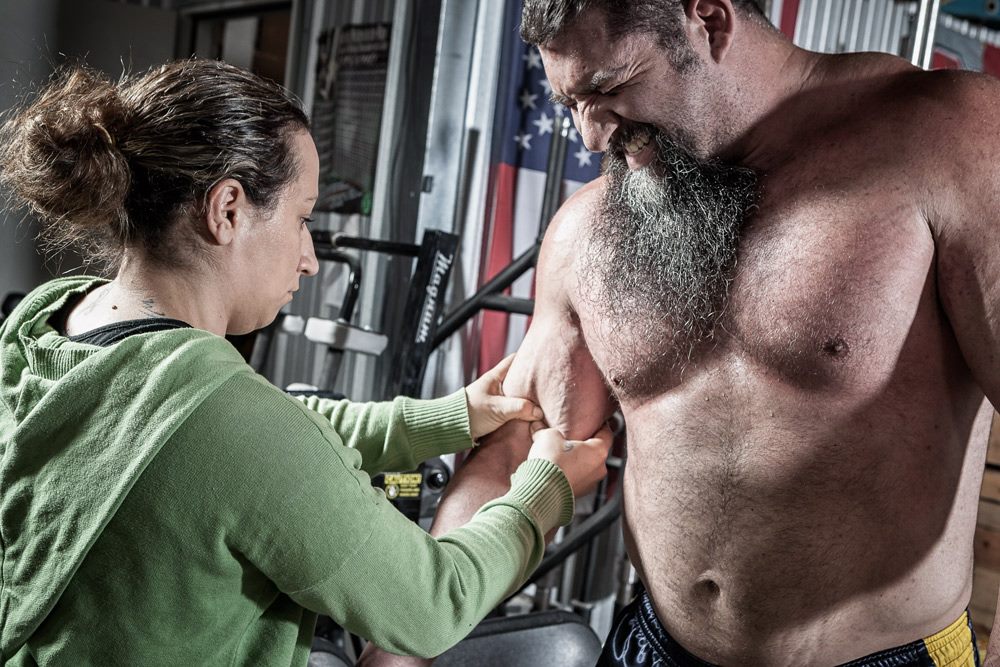
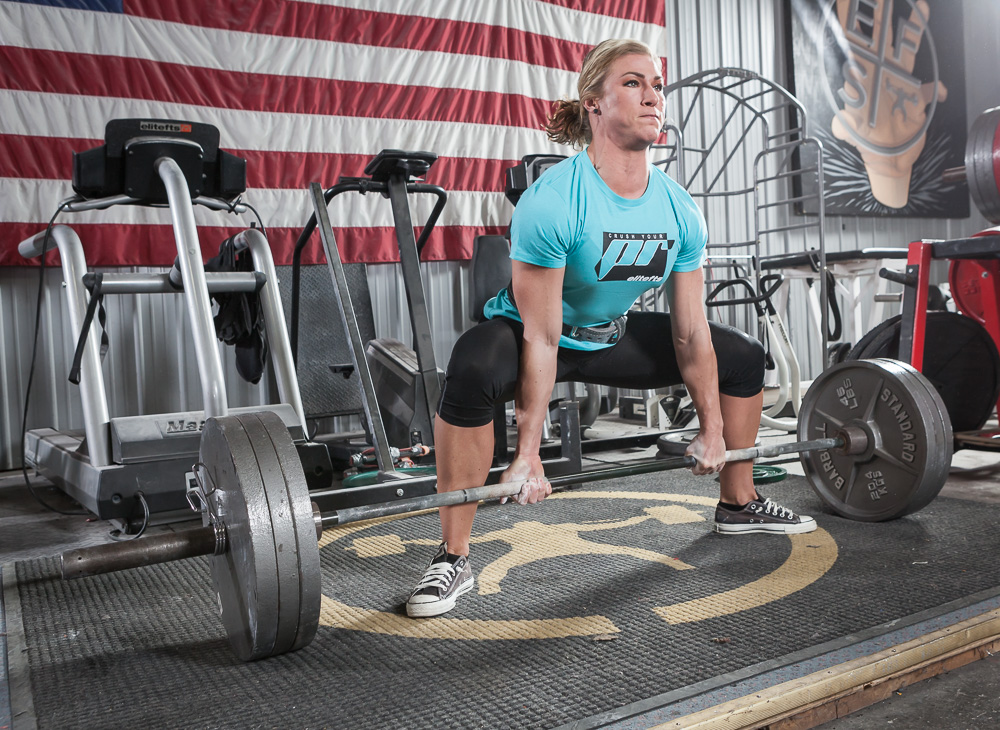
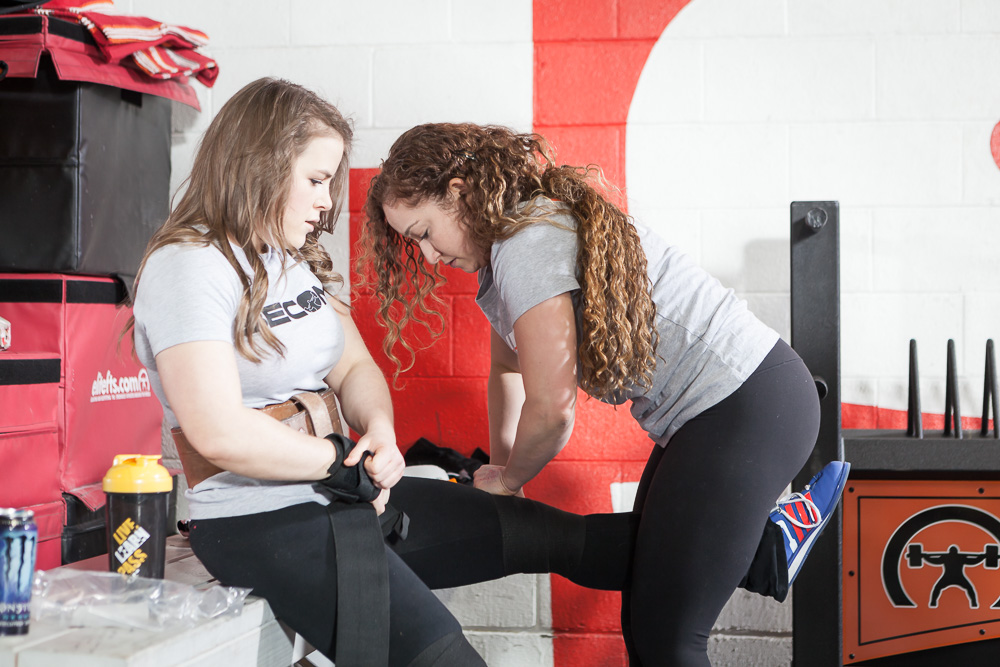
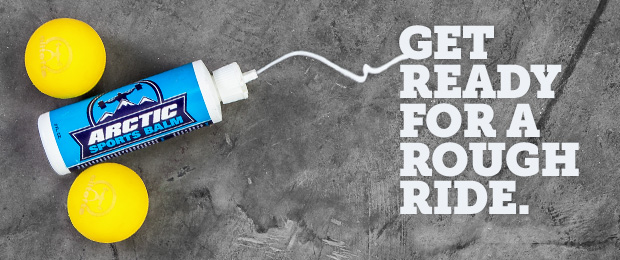
you continue to inspire me, thanks
This article is so applicable to those who are PLers, weightlifters, bodybuilders, crossfitters, etc.
In fact this is applicable to about all aspects of life - Heart & will, definitely set the direction of your success.
Thanks for this!